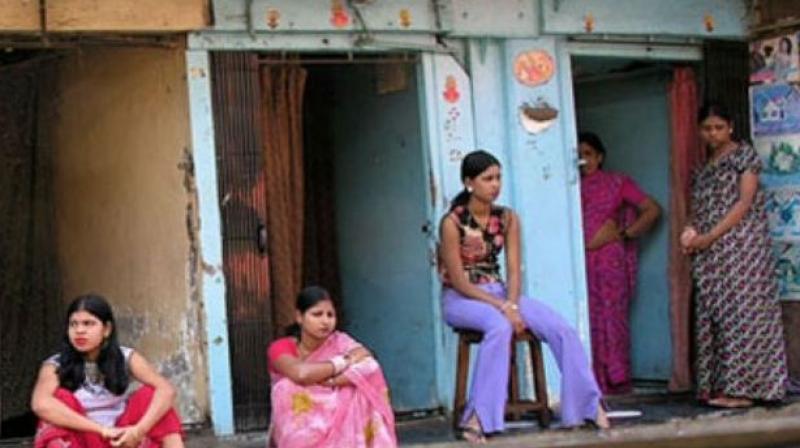Sex workers in AP fight for survival during pandemic crisis
Nearly 1.2 lakh sex workers in Andhra Pradesh faced severe financial difficulties during Covid-induced lockdown conditions

Vijayawada: Sex workers are among those who financially suffered during the two waves of Coronavirus in Andhra Pradesh, so much so; they have run into debts.
According to a recent survey, nearly 1.2 lakh sex workers in AP faced severe financial difficulties during Covid-induced lockdown conditions, particularly those from low-income families.
Tafteesh, Vimukthi and HELP, a human rights organisation; conducted an analysis of financial statuses of human trafficking survivors and commercial sex workers belonging to states of West Bengal, Chhattisgarh and Andhra Pradesh post Coronavirus lockdowns. The organisation found that majority of sex workers had been forced to take loans for coping with costs of their day-to-day living.
Ninety percent of them have landed into debt traps, with payments pending to micro finance institutions and private lenders from whom they borrowed money. Vimukthi’s data is based on 500 sex workers within Prakasam, Guntur and Krishna districts of Andhra Pradesh.
In particular, of 142 sex workers, 116 took loans during the first wave of Coronavirus. Ninety-nine per cent of them are still indebted, many even struggling to pay interest on their loan amounts. On an average, they had borrowed Rs.52,350 – ranging from minimum Rs. 5,000 to maximum Rs. 4,30,000. Money borrowed was spent for food, rents and hospitalisation charges, including for Covid-19 treatment.
Vimukthi convenor S. Meharunnisa said government provided rice and dal during the first wave of Covid-19, with which they could nurture their families. But in the second wave, it did not supply any essential commodities. Sex workers thus had to take loans. Meharunnisa wanted the state governments to provide a special package to sex workers, so that they could come out of their debt traps.
HELP secretary N.V.S. Ram Mohan said the government should abide by National Human Rights Commission’s directives and extend to sex workers alternative livelihood schemes, besides following Supreme Court orders that medical and other facilities provided to migrant labour shall be made applicable to sex workers too.

